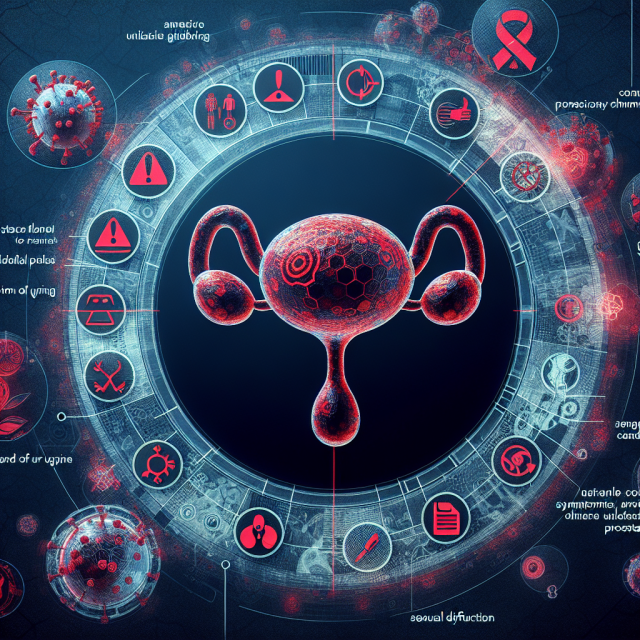
Prostate cancer is one of the most common cancers among men, yet many people overlook its early signs. Understanding prostate cancer symptoms can be life-saving, especially for those at higher risk. So, what should you watch for, and when should you take action?
Table of Contents
1. What Is Prostate Cancer?
Prostate cancer develops in the prostate gland, a small organ in men responsible for producing seminal fluid. It usually grows slowly but can become aggressive. Recognizing prostate cancer symptoms early can make treatment far more manageable.
Analogy: Think of your body as a car. If warning lights start flashing, you don’t ignore them, right? The same applies to your health.
2. Why Early Detection Matters
Why should you be vigilant? Early detection can be the difference between a treatable condition and a more severe prognosis. The earlier you spot prostate cancer symptoms, the better your chances of effective treatment.
Key Insight: Early-stage prostate cancer often presents subtle signs. Being proactive is crucial.
3. Common Early Prostate Cancer Symptoms
The tricky thing about prostate cancer is that it doesn’t always show symptoms early on. When signs do appear, they can vary widely. Let’s dive into the most common symptoms you should keep an eye out for.
4. Frequent Urination
One of the first signs many men notice is the need to urinate frequently, especially at night. If you’re waking up multiple times to go to the bathroom, it could be more than just aging or a weak bladder.
Advice: Don’t brush this off as “just getting older.” If it disrupts your life, it’s worth discussing with your doctor.
5. Weak or Interrupted Urine Flow
A weak or interrupted stream of urine is another potential warning sign. You might feel like you can’t empty your bladder fully or that you have to strain to urinate.
What It Means: This symptom occurs because the cancerous growth may be pressing against the urethra, restricting urine flow.
6. Blood in the Urine or Semen
Seeing blood can be alarming—and it should be. Blood in your urine or semen is never normal and warrants immediate medical attention.
Pro Tip: Even if it happens only once, schedule a check-up. Early intervention can make a world of difference.
7. Erectile Dysfunction
Prostate cancer can affect sexual health, causing erectile dysfunction (ED). While ED can result from various factors, if it appears alongside other prostate cancer symptoms, it’s essential to dig deeper.
Note: Don’t feel embarrassed to bring this up with your healthcare provider. Open conversations lead to better care.
8. Persistent Pain in the Pelvis or Lower Back
Unexplained, persistent pain in the pelvic area or lower back may be a red flag. As cancer grows, it can cause discomfort or even spread to bones, causing chronic pain.
Actionable Insight: Keep track of any ongoing aches or pains, and don’t dismiss them as “just part of getting older.”
9. Unexplained Weight Loss
Sudden, unexplained weight loss can be a symptom of many cancers, including prostate cancer. If you notice significant weight loss without changing your diet or exercise routine, it’s time to see a doctor.
Reminder: Weight loss can be a late symptom, so don’t wait for this sign to take action on earlier symptoms.
For community support and personal stories, visit HealingWell.
10. When to See a Doctor
When should you take these symptoms seriously? If you notice any of the signs mentioned, especially persistent issues, schedule a visit with your healthcare provider. Early discussions can lead to early diagnosis and better outcomes.
Practical Tip: Bring a list of your symptoms to your appointment. This helps doctors understand your concerns more clearly.
For more detailed health guides, check out Health at HealingWell.
Conclusion
Understanding prostate cancer symptoms can truly make a difference in early detection and treatment. Don’t let fear or embarrassment prevent you from seeking medical advice. Remember, it’s your body, and you deserve the best care possible.
FAQs
1. How common is prostate cancer among men?
Prostate cancer is one of the most common cancers in men, especially those over 50. Early detection significantly improves treatment outcomes.
2. Can younger men get prostate cancer?
Yes, though it’s less common. It’s still possible for men in their 40s or even younger to be diagnosed, especially if there’s a family history.
3. Is frequent urination always a sign of prostate cancer?
No, it could be due to other conditions like an enlarged prostate or bladder issues. However, it’s essential to get checked if the symptom persists.
4. What tests are used to diagnose prostate cancer?
Doctors often start with a PSA blood test and a digital rectal exam (DRE). Further tests like biopsies may be needed for confirmation.
5. Are there lifestyle changes that can lower the risk of prostate cancer?
Yes, a healthy diet, regular exercise, and not smoking can reduce your risk. Always consult your doctor for personalized advice.





